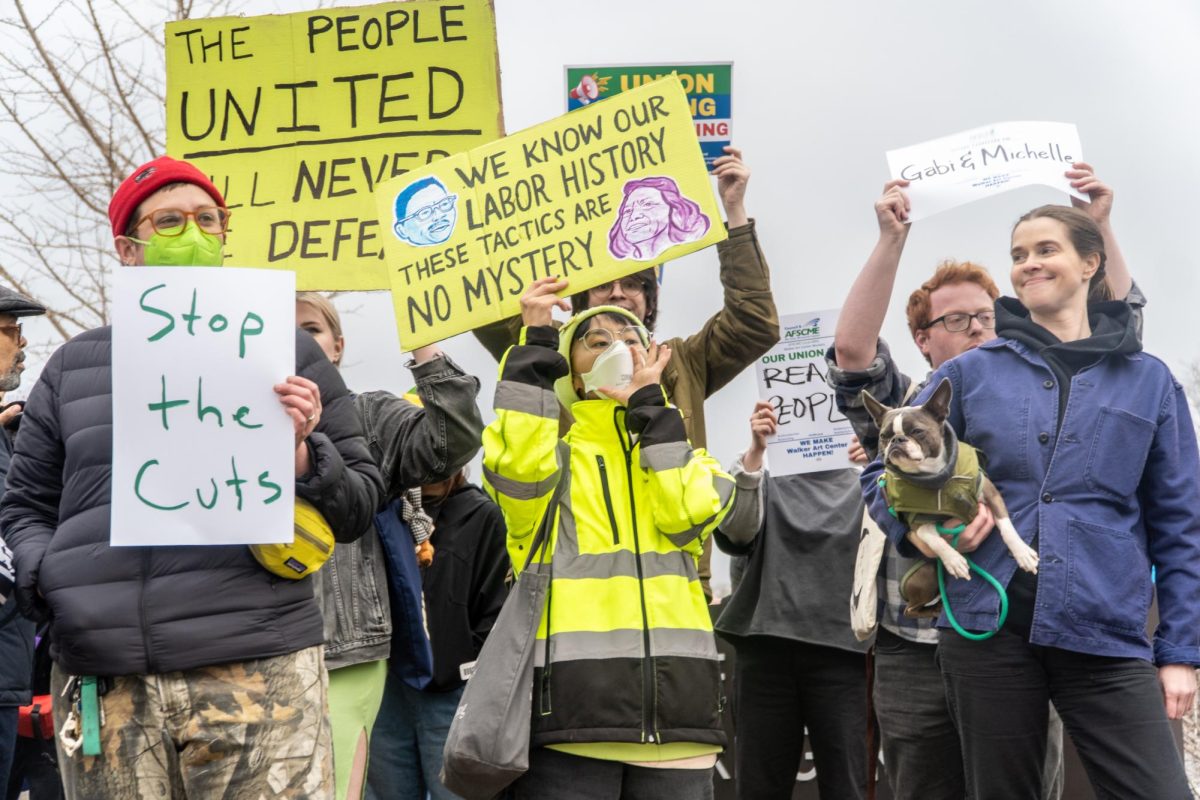Religion and the state tower above us with arrogant authority. Yet, each is only as powerful as we collectively allow.
This is the paradox French existentialist Jean-Paul Sartre attempted to solve in the play “The Flies.” Sartre based his play on Aeschylus’ “Oresteia” – the cycle of works about the revenge of siblings Orestes and Electra against their mother Clytemnestra and Aegisthus, who conspired to kill the pair’s father, King Agamemnon.
A new adaptation of “The Flies” by the Bedlam Theatre takes up the struggle for freedom where Sartre left off.
The Bedlam Theatre players hope to introduce a new element of uncertainty into the story, director John Francis Bueche said in an interview with The Minnesota Daily.
“We had a lot of thoughts about what motivates the play,” Bueche said. “There’s still room for audience interpretation.”
One of the major changes the theater made to “The Flies” is the introduction of cockroaches. The citizens of Argos are roachlike in Sartre’s play, and now, they appear as literal roaches. Bueche said this addition was prompted by a common thread in the Aeschylus and Sartre versions, which portray the citizens as powerless to control their own fates.
For Sartre, Bueche added, “Orestes is an existential hero,” who solves the citizens’ problems. In the Bedlam Theatre version, Orestes (Josh Scrimshaw) is less heroic than he is defiant. The play’s ending leaves the audience in doubt about the fate of the roach citizens.
“In both versions, the question of right and wrong is cut and dry,” Bueche said. “We’re trying to open up the ambiguity.”
That ambiguity is heightened right from the start, as the chorus of roaches recounts the bloody story of the Atrides – descendents of Atreus, whose family history is awash with blood. The addition of the prologue is happily offset by cutting approximately half of Sartre’s original text, leaving “The Flies” at a more manageable run time of two hours.
The Bedlam Theatre production also increases the role of the female characters. In contrast to Orestes’ nonchalance, his sister Electra (Sarah Garner) finds to her despair that “action is easy, but dealing with the aftermath is hard,” Bueche said.
Sartre wrote “The Flies” in occupied France during World War II. As the Nazis marched across Europe, it must have been hard to visualize a character who could so easily doubt the power of the large institutions that control people’s lives.
Part of the rationale for including the roaches, Bueche said, was to put humanity in perspective. For the 300-million-year-old species, “human existence is a blip in roach evolution,” he added.
Perhaps after seeing “The Flies,” we can emulate the roaches and consider God and state in terms of their brief tenure on our planet.







